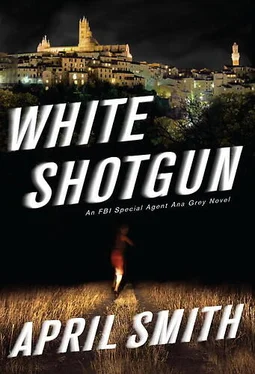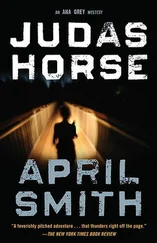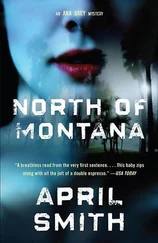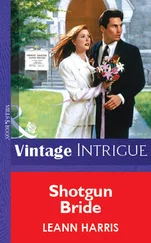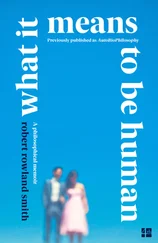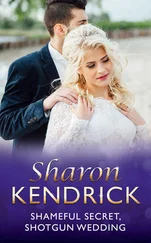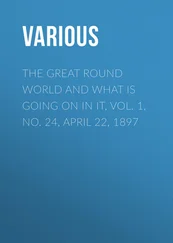April Smith - White Shotgun
Здесь есть возможность читать онлайн «April Smith - White Shotgun» весь текст электронной книги совершенно бесплатно (целиком полную версию без сокращений). В некоторых случаях можно слушать аудио, скачать через торрент в формате fb2 и присутствует краткое содержание. Год выпуска: 2011, ISBN: 2011, Жанр: Триллер, на английском языке. Описание произведения, (предисловие) а так же отзывы посетителей доступны на портале библиотеки ЛибКат.
- Название:White Shotgun
- Автор:
- Жанр:
- Год:2011
- ISBN:978-0-307-59679-6
- Рейтинг книги:4 / 5. Голосов: 1
-
Избранное:Добавить в избранное
- Отзывы:
-
Ваша оценка:
- 80
- 1
- 2
- 3
- 4
- 5
White Shotgun: краткое содержание, описание и аннотация
Предлагаем к чтению аннотацию, описание, краткое содержание или предисловие (зависит от того, что написал сам автор книги «White Shotgun»). Если вы не нашли необходимую информацию о книге — напишите в комментариях, мы постараемся отыскать её.
White Shotgun — читать онлайн бесплатно полную книгу (весь текст) целиком
Ниже представлен текст книги, разбитый по страницам. Система сохранения места последней прочитанной страницы, позволяет с удобством читать онлайн бесплатно книгу «White Shotgun», без необходимости каждый раз заново искать на чём Вы остановились. Поставьте закладку, и сможете в любой момент перейти на страницу, на которой закончили чтение.
Интервал:
Закладка:
He falls silent.
I now have custody of Giovanni’s mailbox car, which gets me to the Walkabout Pub. Chris, the dour Englishman behind the bar, is wearing rainbow-colored suspenders over a black shirt, adding a note of frivolity to the dull red atmosphere.
“Enjoying the Palio?” I ask.
“The party has barely begun,” he replies ambiguously, putting a Foster’s under my nose.
“What happens tomorrow?” “I don’t keep up with it,” he says. “I just pour the beer.” “Why do you live here?” “I enjoy the expat community.” “And the Italian girls?” He blows through his lips. “I stay away from the Italian girls. I value my equipment, if you take my meaning.” Muriel comes in through the door, but instead of her usual oversized pop art tunics and wild tights, bare feet in splintering old Dr. Scholl’s, she is wearing city clothes: a long brown skirt and a beige crocheted jacket.
“You look nice,” I say. “Where are you off to?” She is edgy, and does not sit down. “London.” “For how long?” “I don’t know. Sheila’s taken ill again. The tumor’s back. They want her to do another round of chemo. We’ll just have to go from there.” “When are you leaving?” “The taxi is outside.” “Anything we can do?” “No worries. Madame Defarge”—meaning her demented landlady—“has everything in hand.” Chris puts up a rum e pera. “One for the road?” Muriel turns away, as if the sight makes her queasy. She looks as flushed and panicky as she did in the hospital corridor, when we learned Giovanni had gone into cardiac arrest.
“No, I couldn’t. I’m just too upset.” “Sorry, love,” he says, disappearing the drinks. “What’s that you’ve got? Going-away present for me?” She’s clutching a rectangular package about seventeen by twelve inches, tightly wrapped with brown paper and twine.
“No, dear; it’s a painting for Giovanni, to wish him a speedy recovery.” “Very cool. I’ll give it to him.” I take the package.
She seems rattled. “I was going to leave it with Chris.” “No worries,” I assure her.
“Well, all right. Give him my best. Ciao, everyone,” she calls, and turns away, wiggling her fingers good-bye over her shoulder as she pulls the door open. We watch the taxi maneuver down the street.
“Did she say when she’s coming back?” I wonder.
“In the meantime,” Chris says, “let’s not allow those shots to go to waste.” Chris places the untouched rum e pera back on the bar. He does one and I do the other. We do a couple more, until the alcohol makes the world a cheerful place, with pleasant surprises around each corner. By the time I climb a bit unsteadily out of the mailbox car in the abbey courtyard, faithfully clutching the painting, I’m not at all concerned that it is meant for Giovanni. Like a greedy child, I can’t wait to see what’s inside.
Veering into the kitchen, I turn on the lights and locate a knife. In a wink I have popped the twine and ripped through the brown paper and protective layers of newsprint. What the hell; I’ll fix it later. I let the wrapping drop and lift out the painting. Another image of high-flying clouds, nicely done. Admiring the delicate wash of blues, I notice that a puff of white powder has accumulated on my fingers. I flip the canvas over and slice off the rest of the backing. Hidden inside the painting is a plastic bag, spilling cocaine where it was pierced by the blade.
FIFTEEN
Palio, Day 2 —SATURDAY, JUNE 30, 7:00 A.M. To ensure the highest level of security, a private ambulance and an unmarked police car leave the hospital early in the morning and arrive at the abbey before the city wakes. The former chapel on the ground floor has been emptied of white sofas and turned into a hospital room, where two nurses are at the ready alongside state-of-the-art medical equipment. Officers will be posted there around the clock. Giovanni, strength and youth on his side, is expected to make a good recovery. The optimism floating through the household like an errant butterfly matches the celebratory mood of the second day of Palio, when traditionally the banner is joyfully carried through the streets, to be blessed by all in church.
And here I come, with my plastic grocery bag of cocaine.
Having settled Giovanni and given instructions to the nurses, my sister is in the garden, cutting flowers.
“Are you ready?” she asks. “We are leaving for church.” She looks me up and down — surprised that I have agreed to wear one of the Ungaro dresses she offered, gray silk chiffon gathered at the waist, with transparent sleeves that button at the cuff.
“Fantastico!” she cries approvingly. “How do you like it?” “It feels like nothing on.”
She laughs. “That’s what you pay for. A lot of money to walk around naked.” Cecilia is wearing another shimmery million-dollar Oca-green suit, low-cut, with multiple strands of solid gold necklaces. She has positioned her feet carefully on a paving stone so as not to ruin her hot-pink heels. Picking up a basket of roses, she pivots carefully on the stone.
“These are for Giovanni, because he must miss the blessing of the Palio. What do you have there?” she asks of the canvas in my hand.
“It’s a painting by the English lady, Muriel Barrett. She left it for Giovanni on her way out of town.” “She is going for good?” Cecilia asks, in a tone that suggests she wouldn’t mind.
“Unclear. Her partner in London is sick.” Cecilia examines the work. “Che bella,” she says admiringly. “But why is the back ripped off?” “I wasn’t looking for it, but this is what I found.” I open the grocery bag. Inside is the broken sack of cocaine.
“It was hidden inside the painting. This woman is passing drugs to your son.” Cecilia twists her lips together. “What do you mean? Passing drugs?” “They’re both dealing, or she’s selling and Giovanni is using. Either way, the load was meant for him.” “I find that hard to believe.” “She left it for Giovanni at the Walkabout Pub. I was there.” Cecilia stares off, trying to get her bearings. The morning sun has grown exponentially hotter; if we stay out here a moment longer, the two of us in our phantasmagorical dresses will air-dry like beef jerky.
“I’d like to talk to him,” I say.
“He’s just had a sedative.”
“When we get back?”
Cecilia nods, striding ahead. “Without a doubt.” “And you’ll tell me about your husband’s business?” I follow her into the cool of the kitchen, where she angrily fills a bucket and throws the roses in. Her rage is about to explode — at me, at everything.
“Don’t worry, Ana; I am not going through this again.” “Going through what?”
Nicosa comes into the kitchen. He’s wearing a finely sculpted dark suit, his hair still wet and tousled from the shower.
“Ready, ladies?”
Cecilia thrusts the plastic bag at her husband. “Cocaine.” He peers inside with the revulsion of a man looking at a dead animal.
“Giovanni is selling drugs. That Englishwoman hooked him back into it.” “Tenerlo! Fermata! Di chi parli?”
Cecilia explains, half-shouting in high-pitched Italian that the drugs were found in a painting given to their son by Muriel Barrett.
“Where is Muriel Barrett now?” Nicosa demands. “I will break her neck.” “Where is she, Ana?”
“Somewhere in the U.K.”
“But the FBI can find her and have her arrested, right?” Cecilia says.
I’m stammering. “I don’t know—” Does she realize what she’s saying?
Cecilia cries, “I want her to pay!” “We can call the authorities in London,” I say mollifyingly.
Cecilia’s gold-laden chest is heaving with emotion. I am watching the epitome of the Italian ruling class becoming undone.
Читать дальшеИнтервал:
Закладка:
Похожие книги на «White Shotgun»
Представляем Вашему вниманию похожие книги на «White Shotgun» списком для выбора. Мы отобрали схожую по названию и смыслу литературу в надежде предоставить читателям больше вариантов отыскать новые, интересные, ещё непрочитанные произведения.
Обсуждение, отзывы о книге «White Shotgun» и просто собственные мнения читателей. Оставьте ваши комментарии, напишите, что Вы думаете о произведении, его смысле или главных героях. Укажите что конкретно понравилось, а что нет, и почему Вы так считаете.
